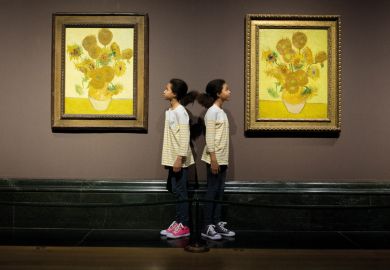Universities in the Netherlands are set to be allowed to revert to using lotteries to decide which students are admitted on to fixed-capacity programmes.
The country’s central admissions lottery was abolished in 2017. At the time, the Inspectorate of Education, a state watchdog, warned that a switch to selective institutional admissions would “result in a somewhat different intake” but that the principle of accessibility would remain untarnished.
A proposed change to the law would allow selection based on at least two qualitative criteria but also give programmes the option of running either unweighted or weighted draws, with umbrella organisations representing institutions and students coalescing around the latter.
The most popular weighted draw model uses selection to place candidates into three groups, admitting the strongest, rejecting the weakest and drawing lots on the borderline cases. It is named after a higher education consultant and former dean at the University of Amsterdam, Klaas Visser.
“The idea of dropping the lottery system was that there should be larger differences between universities and between faculties,” he told Times Higher Education. “The political reasons were much in line with the times.”
The return of lotteries was first proposed in 2021 by the former administration of Mark Rutte, who is still serving as prime minister at the head of a reshaped government. Hatte van der Woude, a liberal-conservative politician in the Netherlands’ lower house, and a former lecturer and policy adviser at The Hague University of Applied Sciences, said the debate “came too soon”. “There’s still some research going on these selection criteria: how and when you should use them,” she said.
Dr van der Woude has reservations about both lotteries and selection, but tabled an amendment that emphasises the option for institutions to combine them in the Klaas Visser model. “There has been some evidence that you can actually select students in a good way without there being any bias, because that’s the main criticism [of selection] – that it excludes students from a migrant background,” she said.
“A good selection procedure would be a mirror of the skills you find to be important in your programme,” said Sebastiaan Steenman, director of education and a member of the board of the Utrecht University School of Governance. “There’s only one extremely broad consensus between all researchers of admissions processes, and that is that an unstructured, open interview doesn’t do anything. Whether you think a lottery is fair or selection is fair is a normative question.” Weighing in again, the education inspectorate recently encouraged programme directors to look at others’ approaches when designing selection.
The politics of admission are layered. Much media criticism has been levelled at University Medical Center Utrecht for an alleged bias towards blonde, white women. A spokeswoman said the institution was “constantly optimising [its] selection procedures, amongst others on the basis of research on bias”.
Supporters of lotteries say they could help the student body better represent Dutch society. “We do believe it would promote equity between students,” said Terri van der Velden, president of Interstedelijk Studenten Overleg (Intercity Student Consultation), the Netherlands’ largest national student organisation. “Our biggest fear with these selection instruments is that they’re chosen at random.”
Dr van der Woude said she was confident that permission for weighted lotteries had broad political support.
Register to continue
Why register?
- Registration is free and only takes a moment
- Once registered, you can read 3 articles a month
- Sign up for our newsletter
Subscribe
Or subscribe for unlimited access to:
- Unlimited access to news, views, insights & reviews
- Digital editions
- Digital access to THE’s university and college rankings analysis
Already registered or a current subscriber? Login










